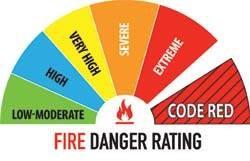Dear Parents, Carers and Community Members
As we approach the half way mark of this term I would like to again thank all families for their cooperation with the COVID-19 arrangements that we have installed. Over the last week we have seen approx. 94% of our students return to school, which has been fantastic.
We still have a number of processes in place across the school which include:
· Social distancing protocols continue to be implemented.
· An extra 2.0 FTE cleaning staff for high traffic areas.
· Staggered break times.
· The hand cleaning and hygiene regimes continue.
· Parents dropping off children at the gates (except K& PP children).
· Visitors to school are limited.
· All assemblies, excursions and non-essential in-school activities are cancelled.
Even though there has been a reduction in restrictions across the state it is very important that we maintain these protocols and we ask that parents and carers maintain social distancing whilst they are waiting to collect their children.
NATIONAL RECONCILIATION WEEK
Today marks the beginning of National Reconciliation Week, which runs 27 May to 3 June each year.
These dates commemorate two significant milestones in the Reconciliation journey - the 1967 Referendum, and the High Court decision in Mabo. The week is also preceded by National Sorry Day which was yesterday (Tuesday, 26 May). Reconciliation Week is a time for us to learn about our shared histories, cultures, and achievements, and to explore how each of us can contribute to reconciliation in our workplaces, schools and communities.
This year’s theme, In This Together, is particularly relevant in current times and will be treated across the school.
P&C MEETING
Our P&C was able to meet on Monday night and I would like to sincerely thank and congratulate the P&C executive for their excellent work over the past months. Behind the scenes Lauren Harry (President), Mel Richardson (Treasurer) and Amanda Bayley (Secretary) have ensured that the P&C continues to work and support us across the school. Their work particularly with managing the school canteen has been very challenging and they have done a wonderful job. Thank you ladies!!
SEMESTER 1 REPORTS
With the regular attendance of many students being lower over this time, the breadth and depth of the curriculum covered throughout Semester 1 may have been reduced. For this reason, schools are not required to include A to E grades on this year’s Semester 1 student reports. It also means that your child’s attendance will not be reported, and any written comments may provide less information on their progress than usual. Our Semester 1 reports will include:
- English and Mathematics - A brief comment regarding progress and the content covered during the semester. Grades are not provided but effort will be indicated.
- Science, HASS, Health & PE, Languages and Technologies - Each student’s comment will comprise a common statement indicating the skills and content covered during the semester. Grades are not provided but effort will be indicated.
- General Comments - The general comment will provide information about attendance, punctuality, behaviour, engagement and attitude. If teachers can, there will be information regarding general progress.
TERM 2 SCHOOL DEVELOPMENT DAY
A reminder that our next school development day is this Friday, 29th May. Children do not attend school on this day and with Monday being a public holiday, this will give our school community a four-day mid-term break. Our staff will be participating in a full day of professional learning at school. The front office will open from 8.00am and close at 2.30pm.
Have a wonderful fortnight.
Kind regards
Craig Ashby
PRINCIPAL




